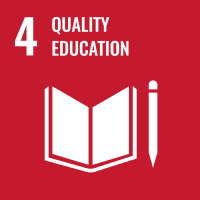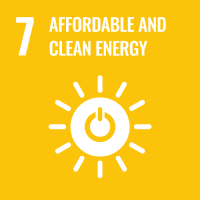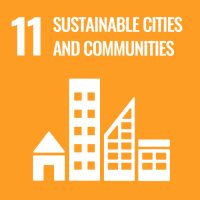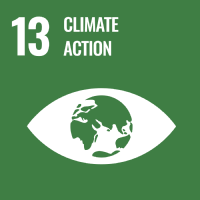education website
- Switch to...
- Main Website
An interview with our Intern, Ally
Ally, you’re currently studying Environmental Science—what drew you to this field, and how has your placement with Solar for Schools helped shape your understanding of real-world climate action?
I’ve always loved the outdoors and wildlife. As a child, I saw the world as this perfectly beautiful place, so learning about climate change was quite upsetting and I became very passionate about pursuing a career that would help the world combat these environmental issues. I am also very lucky to have had incredible and enthusiastic teachers throughout my education who have always supported in helping to nurture this passion.
My placement with Solar for Schools has been a powerful experience in real-world climate action. It’s given me the opportunity to engage with my wider community- visiting schools, attending events and conferences, to help inspire the next generation of eco ambassadors.
When I first applied, I was drawn to the professional development aspects: improving my communication skills, gaining marketing experience, and building a network. But it’s become so much more than that. This placement has shown me how impactful environmental education can be. It’s not just about teaching young people facts it's about empowering them to believe they can make a difference. Seeing their enthusiasm and curiosity is truly magical, and it reminds me of how I once felt when inspired by my own teachers.
Being part of an organisation like Solar for Schools has also helped me understand the real challenges of implementing climate solutions, particularly around solar energy and decarbonisation. It’s given me a more grounded, realistic view of the obstacles we face, while also showing me the immense potential of grassroots education and action.

You’ve recently developed our new Solar Ambassador workbook—can you tell us what that is, and what you hope students will gain from it?
The Solar Ambassador Scheme was already being used by the education team when I began my placement, but I was given the exciting opportunity to develop and expand it as my main project. The scheme is built around four key pledges that pupils commit to, designed to nurture their passion for becoming ambassadors for positive change. These ABCD pledges are:
A: Teaching peers about solar energy and sustainability by delivering Assemblies
B: Encouraging positive Behaviour Change by promoting energy awareness
C: Communicating solar and energy information to the wider school community
D: Using, analysing, and sharing our school’s solar generation and electricity Data
The KS3 Solar Ambassador Workbook builds on these four pledges, guiding students through a series of fun, engaging, and thought-provoking activities that support each commitment.
A Solar Ambassador is someone who cares about creating meaningful change in their local community. My goal with this workbook is to provide motivated young people with the tools they need to inspire others, drive sustainable behavioural changes, and share their knowledge about energy and environmental sustainability.
Ultimately, I hope that by completing this workbook, students feel empowered to make a real difference in their schools and communities. It’s so important for young people to know (and truly believe) that they are capable of shaping a better world. Every child deserves to be reminded that they absolutely have the power to create positive change, they just need to believe in themselves.


We love that this journey has come full circle: you were once a student of our Head of Education, Wendy! What was it like being taught by her then, and how does it feel to now be working with her on furthering our Education Programme?
Absolutely! Wendy taught me when I was in Year 7 and also led the Eco Group that I was a part of throughout high school and sixth form. She has always been incredibly enthusiastic and passionate about creating positive change for both the environment and the community. She remains one of the most influential role models I’ve ever had. Without her support and encouragement, I truly wouldn’t be where I am today.
During my time as Eco Captain in sixth form, Wendy gave me so many incredible opportunities including encouraging me to apply for the Darwin200 project.
I was accepted, and through that, I had the chance to represent the UK as a Darwin Leader, create Cape Verde’s first green turtle database, and direct my own three-part documentary. She also invited me to speak at her Sustainability Learning Conference, and most recently, supported me in applying for a placement with Solar for Schools.
Wendy has influenced me more than she’ll ever know. She’s a shining example of how impactful passionate teachers and eco groups can be for students. She always recognised and nurtured the passion in her students, helping us to reach our goals- whatever they were. Her unwavering support has made me feel empowered and capable, and I feel incredibly privileged to now be working alongside her to inspire the next generation and for that, I would like to thank her very much.

Why do you think green skills and opportunities like this placement are so important for young people entering the workforce today?
Placements are incredibly valuable because they give you the chance to apply what you've learned in real-life scenarios. They help bridge the gap between classroom learning and the real world, which is often very different. This kind of experience allows you to deepen your understanding, build confidence, and develop practical skills that you just can’t get from textbooks.
Green skills in particular are becoming more and more important. As the world faces the challenges of climate change and the shift to a low-carbon economy, there’s a growing demand for people who understand sustainability and can help drive environmental progress.
Opportunities like this placement help young people build the knowledge, adaptability, and mindset needed to take on those challenges.
Placements give young people a valuable opportunity to explore whether a career in a particular sector is the right fit for them. They offer a real taste of what working in that field is actually like, beyond what you might imagine or learn in school. For those passionate about the environment, it’s a chance to see how that passion could translate into meaningful climate action. It helps you figure out not just what you want to do, but also how you can make a positive impact through your career.

What advice would you give to students who are passionate about sustainability and want to find their place in the climate space—whether through schools, apprenticeships, or something else?
Get involved wherever you can- join your school’s eco group, volunteer with local environmental projects, or take part in community initiatives. These are great ways to start making a difference and to meet others who care about the same things.
Say yes to as many opportunities as possible, even if they feel outside your comfort zone. Those are often the experiences that help you grow the most and teach you things you wouldn’t learn otherwise.
Whether it’s a placement, a workshop, or a local campaign, every experience adds to your skills and helps you discover what you’re really passionate about.
Don’t worry if you’re not sure exactly what you want to do- there are so many ways to get involved in the climate space, from science and policy to education and creative work.
The most important thing to remember is that your voice matters. Young people have real power to drive change, and it all starts with getting involved and believing in your impact.
You can download Ally's incredible Solar Ambassador Workbook by clicking below:



